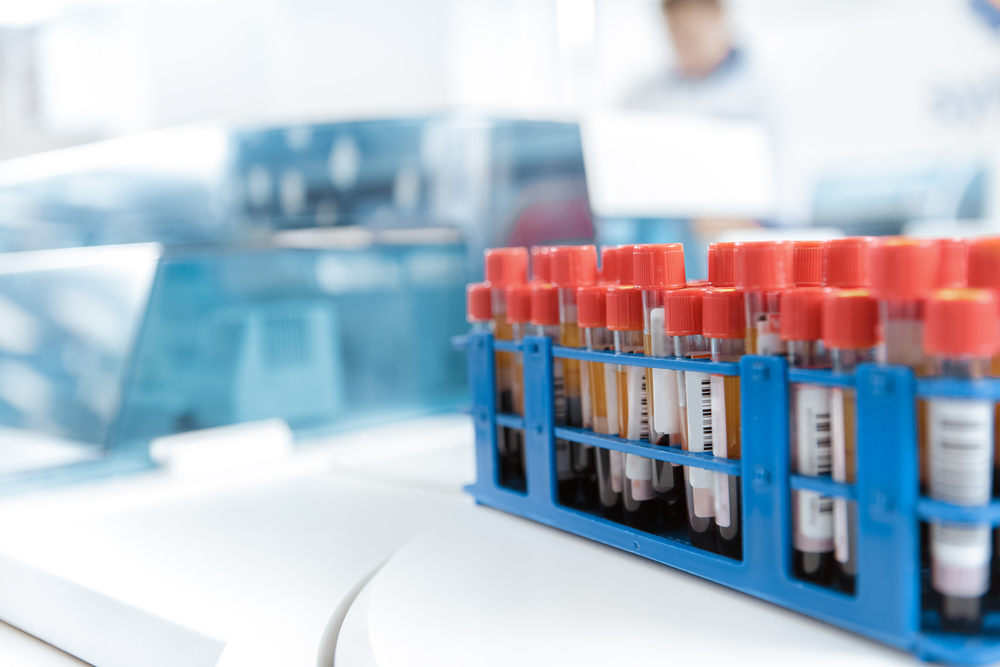How to Test Immune System Strength

Our immune system is a remarkable defense mechanism, tirelessly working to protect us from various pathogens and illnesses. Having a robust immune system is crucial for preserving overall health and well-being. However, just like any other system in our body, the immune system can sometimes weaken or become compromised. In this extensive guide, we will explore the different methods available to test your immune system"s strength, both at home and through medical evaluations.
Immunity Test Names
Complete Blood Count (CBC)
This is one of the most common blood tests that healthcare professionals use to assess overall health. It measures the number and quality of various blood components, including red and white blood cells. Among these, white blood cells, especially lymphocytes and neutrophils, play a vital role in immune responses. An abnormal white blood cell count could indicate issues with your immune system.
T-Cell Count
T-cells are a crucial component of the immune system. These cells are responsible for coordinating the body"s cellular immune response. A T-cell count test measures the number of these cells in your blood, providing valuable insights into the strength of your immune defense.
Immunoglobulin Levels
Antibodies, known as immunoglobulins, are essential for immune defense. These proteins help our bodies identify and neutralize harmful invaders like bacteria and viruses. Testing for immunoglobulin levels can indicate whether you have enough antibodies to protect you from infections.
Cytokine Profiling
Cytokines are signaling molecules that play a significant role in the immune system"s function. Measuring the levels of various cytokines in your blood can provide a detailed analysis of your immune system"s signaling pathways, giving you a comprehensive picture of its health.
Allergy Testing
Allergies can put a considerable strain on your immune system. Allergy tests can help identify specific triggers that may weaken your immune response, providing valuable information on how to better manage your immune health.
Lymphocyte Proliferation Assay
Lymphocytes, a type of white blood cell, are critical for immune function. A lymphocyte proliferation assay measures how well your lymphocytes can multiply when faced with challenges, offering insights into the functionality of your immune cells.
How to Check the Immune System in a Blood Test
Blood tests are one of the most convenient and informative ways to assess your immune system"s health. Here"s a step-by-step guide on how to check your immune system through a blood test:
Consult Your Healthcare Provider
To get a blood test to assess your immune system, you"ll need to consult a healthcare provider. They can help determine which specific tests are most relevant to your health and well-being.
Complete Blood Count (CBC)
A complete blood count (CBC) counts your red blood cells, white blood cells, and platelets, among other components of your blood. Abnormal white blood cell counts can be an indicator of immune system issues.
T-Cell Count
If your healthcare provider suspects issues with your cellular immune response, they may order a T-cell count test to evaluate the number of these crucial immune cells in your blood.
Immunoglobulin Levels
To assess the strength of your antibody-mediated immune response, a test for immunoglobulin levels can be conducted.
Cytokine Profiling
Cytokine profiling is typically a more specialized test and may be recommended if your healthcare provider suspects specific immune system disorders or imbalances.
Lymphocyte Proliferation Assay
This test evaluates the ability of your lymphocytes to multiply when challenged, offering valuable insights into your immune cell functionality.
Follow Your Healthcare Provider"s Recommendations
After receiving your test results, it"s essential to follow your healthcare provider"s recommendations for any necessary follow-up or treatments
Blood Test to Check Immune System
Blood tests are a reliable and informative way to assess the health of your immune system. Here"s a closer look at the blood tests that can provide insights into your immune system:
Complete Blood Count (CBC)
A complete blood count (CBC) quantifies your blood"s red, white, and platelet components. Abnormal white blood cell counts can be an indicator of immune system issues.
T-Cell Count
T-cells are essential for immune responses. A T-cell count measures the number of these crucial immune cells in your blood.
Immunoglobulin Levels
Testing for immunoglobulin levels can indicate the strength of your immune system"s ability to produce antibodies.
Cytokine Profiling
This advanced test provides a comprehensive analysis of cytokine levels in your blood, offering insights into the status of your immune system"s signalling pathways.
Lymphocyte Proliferation Assay
This test measures how well your lymphocytes can multiply when faced with challenges, giving you a closer look at your immune cell function.
How to Test if Your Immune System is Weak
If you suspect that your immune system might be weak or compromised, there are several methods to check its status:
Self-Assessment
One of the simplest ways to assess your immune system is to evaluate your overall health. Frequent illnesses, slow recovery, and persistent fatigue can be signs of a weakened immune system.
Consult a Healthcare Professional
If you have concerns about your immune system, it"s advisable to consult a healthcare provider. They can recommend appropriate tests and evaluations based on your symptoms and medical history.
Lifestyle Factors
Consider your lifestyle habits, including diet, exercise, and sleep quality. A healthy lifestyle can significantly contribute to a strong immune system. Poor nutrition, lack of exercise, and chronic stress can weaken the immune response.
Regular Check-ups
Scheduling regular check-ups with your healthcare provider can help catch potential issues with your immune system early, allowing for timely intervention.
Review Your Medical History
Some medical conditions or treatments, such as chemotherapy or autoimmune disorders, can weaken the immune system. Reviewing your medical history can help identify potential factors contributing to a weakened immune response.
What Are Signs of a Weak Immune System
Recognizing the signs of a weak immune system is crucial for maintaining your health. Some typical indications and symptoms are as follows
Frequent Infections
If you"re prone to frequent infections, such as colds, flu, or urinary tract infections, it may indicate a weakened immune system. A robust immune system should be able to fend off many common pathogens effectively.
Slow Wound Healing
Delayed wound healing or the development of persistent sores can be a sign of an impaired immune response. An efficient immune system plays a vital role in the body"s ability to repair and regenerate damaged tissues.
Chronic Fatigue
Ongoing fatigue, even after adequate rest, could be a symptom of an overburdened immune system. The immune system expends a considerable amount of energy during the immune response, and chronic fatigue may be a sign that it is working on overdrive.
Autoimmune Conditions
Conditions where the immune system mistakenly attacks the body"s own tissues, such as rheumatoid arthritis or lupus, suggest immune dysfunction. In autoimmune disorders, the immune system becomes hyperactive and targets healthy cells and tissues.
Allergies
Severe or persistent allergies can indicate an immune system that is overreacting or struggling to maintain balance. Allergies result from an immune system response to non-threatening substances, and a strong immune system should be able to modulate these responses effectively.
Digestive Issues
The immune system and gut health are intimately related. Chronic digestive problems, such as irritable bowel syndrome or inflammatory bowel disease, may be related to immune system weaknesses. The gut contains a significant portion of the body"s immune cells and plays a crucial role in overall immune health.
Chronic Inflammation
Persistent inflammation can indicate an immune system that is not functioning optimally. Chronic inflammation is linked to a wide range of health issues, including cardiovascular disease, cancer, and autoimmune disorders.
Unexplained Weight Loss
If you"re losing weight without intending to and there is no apparent reason, it can be a sign of a weakened immune system. In some cases, the immune system can attack healthy tissues and cause unintended weight loss.
Conclusion:
Maintaining a healthy immune system is essential for overall well-being. Testing your immune system"s strength through various methods, including blood tests and self-assessment, is crucial for early detection of issues. By staying informed about immunity test names, understanding the importance of a balanced lifestyle, and recognizingsigns of a weak immune system, you can take proactive steps to support your body"s defense mechanisms. It"s important to remember that consulting a healthcare professional for a comprehensive evaluation is crucial if you suspect any immune system issues. Prioritizing a healthy immune system can lead to a happier and healthier life. Remember, your immune system is your body"s first line of defense, so take care of it, and it will take care of you.





